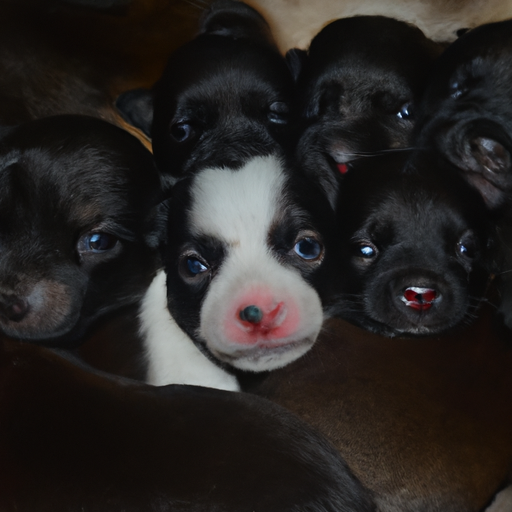If you’re a new puppy parent or caregiver, you may be wondering: “When can puppies see?” It’s an exciting moment when your little furball opens their eyes and begins to explore the world around them. But how does this process work? What should you expect? Don’t worry, we’ve got the answers to all your questions.
Understanding Your Puppy’s Early Development
Like human babies, puppies are born in a state of immaturity. Their eyes are tightly shut, and they rely heavily on their sense of smell and touch to navigate their environment. This is a critical time for their growth and development, and it’s important to treat them with care and gentleness.
The Opening of the Eyes
Typically, puppies begin to open their eyes between 10 to 14 days after birth. However, it’s important to note that this can vary depending on the breed and size of the puppy. Smaller breeds tend to open their eyes earlier than larger breeds.
Vision Development in Puppies
Although puppies can open their eyes at around two weeks old, this doesn’t mean they can see clearly yet. Their vision will be blurry at first, and they’ll primarily see shadows and shapes. Over the next few weeks, their vision will gradually improve.
By the time they’re about four weeks old, they’ll have basic visual capabilities. By six to eight weeks old, their vision will be much sharper, although it will continue to develop until they’re around 16 weeks old.
How to Care for Your Puppy’s Eyes
It’s crucial to keep your puppy’s environment clean and safe during this delicate period.
Here are some tips on how to care for your puppy’s eyes:
- Avoid bright lights: Too much light can damage a puppy’s developing eyes. Keep them in a dimly lit environment until their eyes are fully open and adjusted to light.
- Keep the area clean: Make sure the area where your puppy sleeps is clean to avoid eye infections.
- Handle with care: Avoid touching your puppy’s eyes. If you notice any discharge or if the eyes look inflamed, consult a vet immediately.
Potential Eye Problems in Puppies
While most puppies develop normal vision, some can experience eye problems. Common issues include:
- Infections
- Congenital abnormalities
- Trauma or injury
If you notice any signs of these problems, such as redness, swelling, or discharge, be sure to seek veterinary care immediately.
Your Role as a Caregiver
As a caregiver, your role is crucial in helping your puppy transition from a world of darkness to one filled with sights. This involves not just physical care, but also emotional support. Patience, gentleness, and understanding can go a long way in helping your puppy adjust to their new senses.
FAQ
Q: Is it normal for puppies to have cloudy eyes?
A: It’s normal for puppies to have a bluish tint to their eyes at first. This should clear up as their eyes mature. If the cloudiness persists beyond eight weeks, consult a vet.
Q: Can I help my puppy open their eyes?
A: No, it’s best to let nature take its course. Do not try to force your puppy’s eyes open. This can cause harm or injury.
Q: When should I take my puppy to the vet for an eye check-up?
A: Ideally, your puppy should have their first vet visit at around six to eight weeks old. This is a good time to check for any potential eye problems.
Q: How can I tell if my puppy has vision problems?
A: Signs of vision problems in puppies include bumping into things, difficulty finding toys or food bowls, or unusual eye appearance. If you notice any of these signs, seek veterinary advice.
In conclusion, the journey of a puppy opening their eyes and beginning to see the world is a unique and precious experience. As a caregiver, understanding this process can help you provide the best care for your furry friend. Remember, every puppy is different, so don’t be alarmed if your puppy doesn’t follow the exact timeline outlined here. When in doubt, always consult with a veterinary professional.



